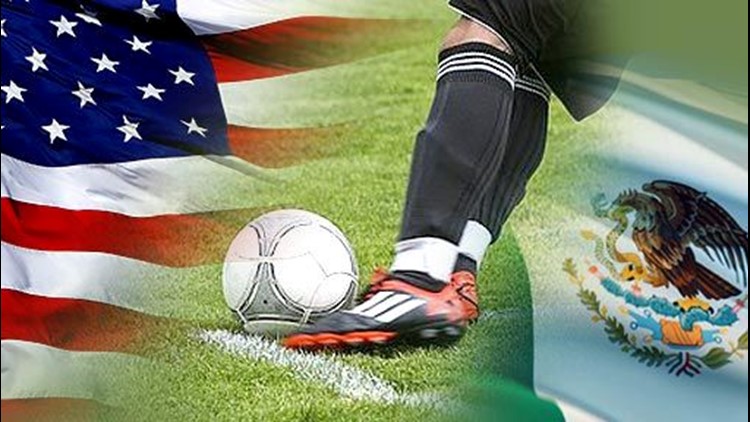ZURICH (AP) - The United States and Mexico could team up and meet FIFA's need for the biggest-ever World Cup in 2026 being staged by the most host nations.
Canada has also joined the North American neighbors for informal talks about a three-way bid in a contest that FIFA will complete during American President-elect Donald Trump's first term, according to persons familiar with the talks. They spoke on grounds of anonymity because the talks are confidential.
FIFA's decision Tuesday to expand the 2026 tournament - to 48 teams from 32, playing 80 games instead of 64 - increased the chances of co-hosting to share the load.
"In some regions not only does it make more sense, it's the only sense," said FIFA vice president Victor Montagliani, who leads the Canadian soccer federation. "I think when more countries share (hosting) it's an opportunity to grow the game."
Asked specifically about a potential three-way bid with the U.S. and Mexico, Montagliani said: "It's definitely a possibility because the rules now allow for it.
"I also respect the fact that each country has the possibility to put on the World Cup (alone) and I think the discussions will happen quite soon as to what is our region is going to look like at this World Cup as I think it is an opportunity for CONCACAF."
U.S. Soccer Federation president Sunil Gulati also took part in a unanimous FIFA Council decision.
Though Mexico soccer leader Decio de Maria does not sit on FIFA's strategy-setting panel, he was also in Zurich with a top-level delegation from the regional soccer body, known as CONCACAF.
The region was already favored to get its first World Cup since the U.S.-hosted 1994 edition, even before Tuesday's expansion decision. It now demands more high-quality training camps, hotels and transport for 48 teams, plus FIFA officials and hundreds of thousands of visiting fans.
"It means the number of countries that can host it without building major infrastructure and stadiums is limited," said Gulati, adding his board has a "fundamental decision" whether to bid. The U.S. could go alone, or bid with one or both neighbors.
Uniting the U.S. and Mexico could win support from more than 20 Spanish-speaking federations among 211 FIFA members that now choose the World Cup hosts.
It should also appeal to FIFA's sense of soccer having a role in society, amid tense cross-border relations caused by Trump's outspoken comments on Mexico.
"Listen, I'm a football guy, I'm not a politician," said Montagliani, who like Gulati speaks fluent Spanish. "The only thing I know from afar about Trump is that he's a big sports guy and he's proven that in the past ... so you would hope that football will trump politics. No pun intended."
FIFA typically looks for strong government support, and has it in the next two World Cup host nations Russia and Qatar. Russian deputy prime minister Vitaly Mutko is a FIFA Council member and attended Tuesday's meeting.
FIFA has allowed co-costing at just one of 22 World Cups from 1930 through 2022, which included Mexico hosting alone in 1970 and '86. FIFA's former leaders later pledged not to repeat their "two of everything" experience of 2002 in Japan and South Korea.
Still, Infantino campaigned for the presidency last year promising an open mind about pan-regional hosting.
FIFA's target is May 2020 to choose the 2026 host, though that could change during meetings being held in Bahrain in May.
Asked if bidding could be accelerated if only three candidates emerged, and who all wanted to work together, Infantino said: "It is premature to discuss about it now."
Copyright 2017 The Associated Press.



